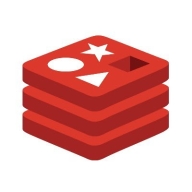

Oracle NoSQL and Redis compete in the database technology category. Redis has the upper hand due to its advanced data management and performance capabilities.
Features: Oracle NoSQL is known for its scalable transactional capabilities, suited for extensive data management, high capacity workloads, and compatibility with Oracle Database, ensuring smooth integration with relational databases. Redis excels in in-memory data structure storage, enabling quick data retrieval, supports various data types, and includes features like geolocation and JSON search, providing superior speed and performance for real-time applications.
Room for Improvement: Oracle NoSQL could enhance its user interface for easier management and simplify its configuration process to reduce the need for specialized support. Improvements in its real-time performance capabilities would be beneficial. Redis might enhance its complexity handling, particularly for managing more sophisticated data structures. Increasing its out-of-the-box persistence features to ensure better data durability and improving support for disk-based operations could broaden its use cases.
Ease of Deployment and Customer Service: Redis offers rapid deployment and ease of integration into existing infrastructures, with abundant support resources ensuring a smooth implementation. Its straightforward model makes it highly accessible. Oracle NoSQL, while providing complex configurations that cater to advanced needs, requires more specialized support, potentially complicating deployment efforts despite its advantages in flexibility for technical needs.
Pricing and ROI: Oracle NoSQL is noted for its competitive pricing and appealing ROI, offering cost-effective scalability with a lower initial investment requirement. Redis, although possibly involving higher setup costs, delivers significant ROI through reduced operational expenses and enhanced performance benefits, which outweigh any initial cost disparities, making it a valuable choice for applications requiring rapid data handling.


The Oracle NoSQL Database (ONDB) provides network-accessible multiterabyte distributed key/value pair storage with predictable latency. Data is stored in a very flexible key-value format, where the key consists of the combination of a major and minor key (represented as a string) and an associated value (represented as a JSON data format or opaque set of bytes). It offers full Create, Read, Update and Delete (CRUD) operations, with adjustable durability and consistency guarantees. It also provides powerful and flexible transactional model that eases the application development.
The Oracle NoSQL Database is designed to be a highly available and extremely scalable system, with predictable levels of throughput and latency, while requiring minimal administrative interaction.
For more information on Oracle NoSQL Database, visit Oracle.com
Redis is a high-performance, scalable, and easy-to-use caching solution that improves application performance. It is also used for session management, real-time analytics, and as a message broker.
Redis's valuable features include its ability to handle large amounts of data quickly, its simplicity and straightforward setup process, and its support for various data structures, providing flexibility for different use cases.
We monitor all NoSQL Databases reviews to prevent fraudulent reviews and keep review quality high. We do not post reviews by company employees or direct competitors. We validate each review for authenticity via cross-reference with LinkedIn, and personal follow-up with the reviewer when necessary.